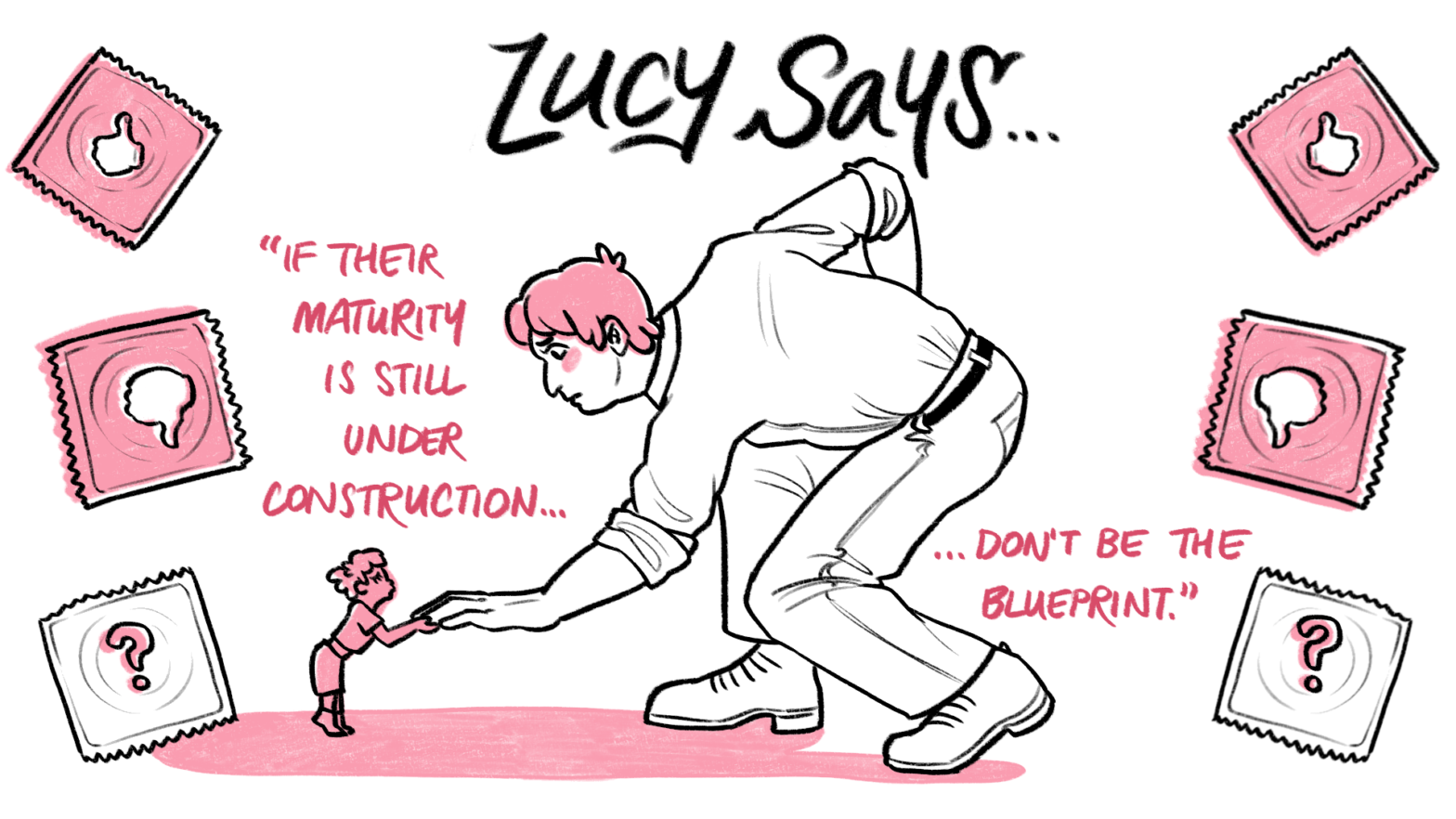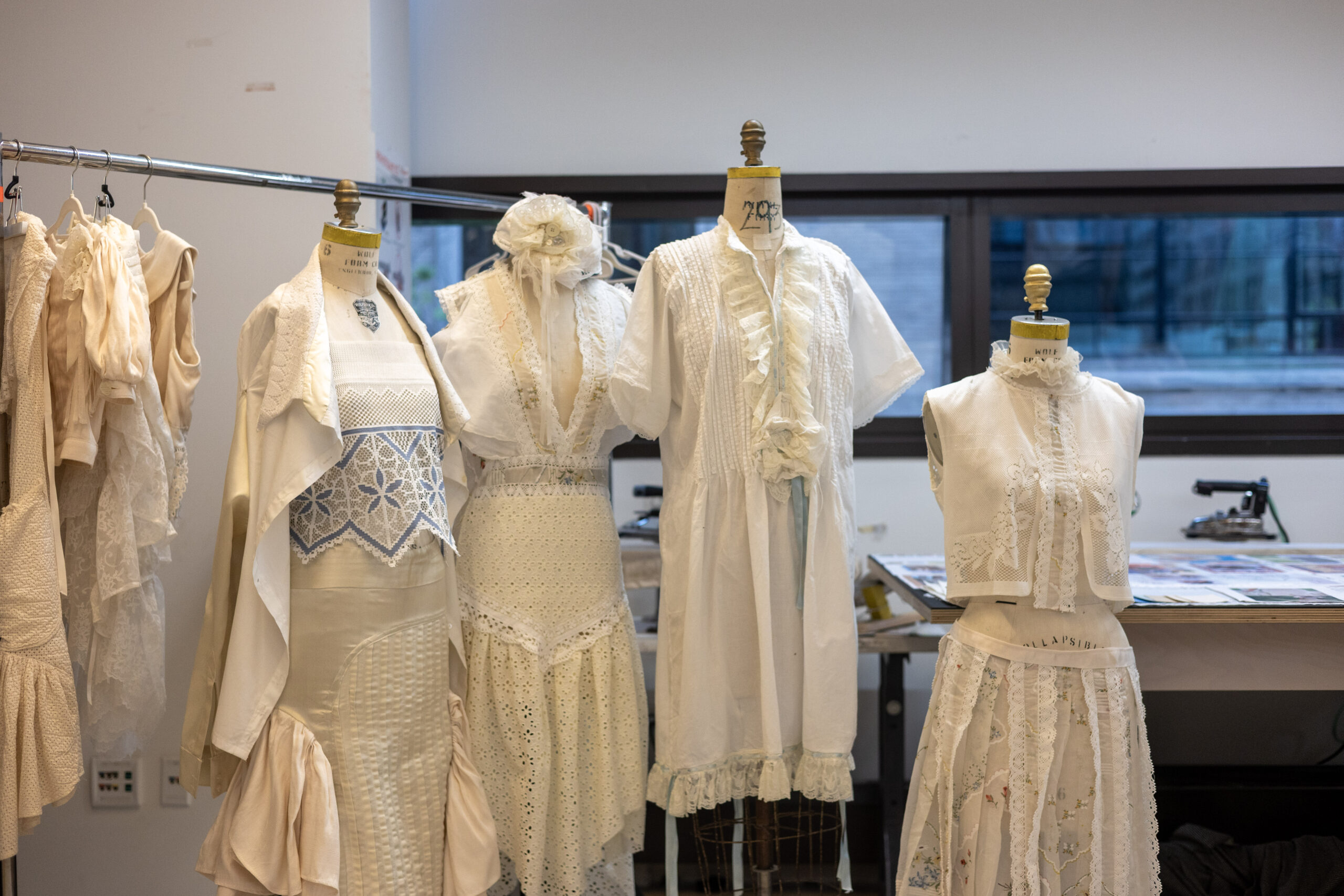Love, Lucy is the New School Free Press’ weekly advice column, where writers anonymously share thoughtfully researched solutions to your questions about life. Send submissions through Love, Lucy’s official Google Form, and you might hear back from Lucy herself.
Dear Lucy,
Am I allowed to fuck a sophomore even though I’m a junior?
From,
Junior Jitters
Dear Junior Jitters,
The long-standing question: should romance really be impacted based on what grade you’re in? The difference between a sophomore and a junior may seem significant in a university atmosphere where age differences are a few years apart and social dynamics are always changing, but should they? The idea of dating someone who is a grade below you can cause anxiety for a variety of reasons, including worries about maturity, social position, or campus culture. Are we simply overanalyzing this, or are there underlying social structures at work here? Power in relationships can appear subtly, particularly when there is a gap in experience. In reality, class year might not matter as much as you think it does.
When it comes to dating or hooking up with someone on campus who’s in a different academic year than yourself, social stigmatism and dynamics can add an extra layer of confusion to what is already difficult on its own — figuring out how you truly feel about someone. Oftentimes, there’s a perceived power imbalance based on experience, as juniors may have spent more time navigating college life while sophomores are still adjusting to the rhythm of university. Research from Sage Journal explains that power in relationships isn’t just about making decisions but also about influence, with subtler forms of resisting or asserting control over decisions.
In most college settings, these dynamics are fluid, and the difference between a sophomore and a junior may not matter nearly as much as people think. Age gaps of a year or two in college are ultimately irrelevant in the long run. Communication matters more because it ensures that both individuals feel respected and heard.
Navigating social dynamics is difficult enough on its own, but managing different academic and personal pressures adds another layer. Juniors frequently place a greater emphasis on preparing for their future careers by balancing demanding coursework, internships, and post-college plans. On the other hand, sophomores are usually still figuring out their majors and experiencing campus social life. This difference can create a natural difference in priorities, which may affect how much time or emotional energy each person is willing or able to devote to the relationship. But again, this is only an issue if both parties don’t communicate openly about their needs and boundaries. Successful relationships, regardless of academic year, require balancing these personal differences.
Debunking the misunderstanding that relationships between different class years are inevitably problematic is important. According to studies on college dynamics from Purdue University, age disparities that occur between two and three years apart don’t matter in the long run. The amount of respect and understanding couples have for one another is more significant. As power dynamics expert Theresa DiDonato points out, in healthy relationships, power isn’t a static entity; it fluctuates and evolves as partners face new experiences together. This perspective is crucial when considering how a junior-sophomore relationship might play out over time.
Engaging with someone in a different stage of their college journey can provide valuable opportunities for both partners to learn from each other’s experiences. A junior might offer insights into navigating academic pressures or securing internships, while a sophomore might bring fresh perspectives and enthusiasm that can lighten up the relationship. These differences can foster personal development and help both individuals emotionally and intellectually. Instead of allowing societal norms to influence you, place a higher priority on considering the potential for growth within any relationship, especially one that crosses academic years.
Societal attitudes toward dating younger people tend to fade as individuals age, making the sophomore-junior distinction less relevant. Few would bat an eye at a relationship with such a slight age difference outside campus. On campus, though, people tend to magnify these things.
It’s important to recognize that external judgment, whether from friends or the larger college community, shouldn’t dictate how you approach relationships. What matters most is how you and your partner feel about the connection rather than the arbitrary social rules others might impose.
So, should you let a one-year grade difference dictate your dating life? Probably not. While it’s important to consider things like power dynamics and differences in various stages of life, these factors aren’t unique to college relationships and can easily be managed with clear communication. What counts is the connection between two people — not their grade on the academic ladder. Every connection is unique. Focus on building trust and understanding above all else. Remember: If their maturity is under construction, don’t be the blueprint.
Love,
Lucy








Leave a Reply